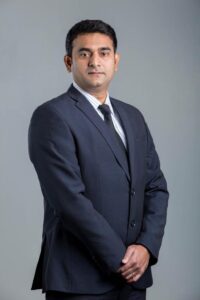
Universal Health Coverage: Everyone, Everywhere speaking with Bliss Healthcare Vice President – Business Growth, Mr. Raja Ganapathy
(Bliss being the biggest private ‘UHC’ health care provider in Kenya, with its 90+ clinics in 39 counties in the country).
1. Universal Health Care is one of the Big Four agenda that the president promised would be quarter his legacy, including in the State of Union.
RAJA: The program has been rolled out in four pilot counties – Kisumu, Nyeri, Machakos and Isiolo. How is UHC faring in these counties, thus far?
Bliss Healthcare was registered with one goal in mind – to provide affordable and quality healthcare and medical services that is accessible to all. We have rolled out Universal Healthcare in our two clinics in Nyeri, six clinics in Kisumu and our own clinic in Masaku to good effect.
For example, in Machakos, a million UHC cards have been given out to the residents who applied for the program. We are also working closely with County Officials with life support systems, react to life-threatening medical emergencies like car accident or cardiac arrest with our standby support of Ambulance services.
2. In real, very practical terms, in these pilot counties, what systems have you set up to prepare for Universal Health Care rollout?
RAJA: UHC facilities covered range from doctor’s consultation to optical, dental, radiology and CT in some clinics. All facilities have primary healthcare services – doctor, laboratory and pharmacy
We have about 1400 staff with over 300 medical doctors and nurses ensuring that we maintain the acceptable patient-staff ratio. We have a panel of over 56 specialist consultants including gynaecologists, paediatricians, skin specialists and cardiologists on call.
The patients that come to us can access any of the facilities countrywide. This is also true for the insured members, whether it be through NHIF or other insurers, where they enjoy portability. For some time we are the only service provider that has been doing this, with our competitors allowing for only identification with one clinic in one county – which means a patient cannot access their health care if they fall ill outside of their designated county. Which makes it less ‘universal’ of course.
3. What particular back-up will private healthcare providers be expected to give the government? What are the ‘weaknesses’ you spot within public clinics, as a professional in the healthcare industry?
RAJA: We as Bliss are available to support the government in whichever way we are requested within our abilities. This includes availing relevant equipment and technology, setting up state of the art ultra-modern facilities and competitive health packages among others. Of course we get referrals from even public clinics and dispensaries, for example, when a CT scan machine isn’t working.
4. Which health care services are in highest demand in Kenya? Can you give us specifics, using examples from the ground from your various clinics countrywide?
RAJA: Generally, priority services differ from region to region depending on what diseases or conditions are prevalent. The illness we manage in Migori may not be the sickness we see in Muranga.
5. How will Universal Health Care ensure that the poor are not left behind in healthcare? Which is your most remote clinic in Kenya – and how does it operate in both staff terms and client reach and ‘satisfaction’ terms?
RAJA: There has been great strides made in the healthcare sector in Kenya. More and more private providers are coming on board investing in new equipment and technology. The government at national and county level is improving infrastructure and coming up with mechanisms of availing affordable healthcare to the citizenry. There has been increase in private public partnerships.
In a nutshell the momentum is good, but more needs to be done, especially to ensure the rural folks and the poor are not left behind. The implementation of the pilot UHC by the president is a clear indication that there is goodwill at the very top.
The gaps between the private and public healthcare providers has continued to decrease, especially in the recognition that none can make it on their own. Especially so is the recognition that the government requires the inputs and infrastructure provided by the private sector who have access to finances for development.
As for your last question, we have clinics in Kakuma, Kapenguria and Maralal.
It is our hope and prayer that Universal Health Care will, one day soon, be available to every Kenyan man, woman and child – from Mombasa to Busia.
















